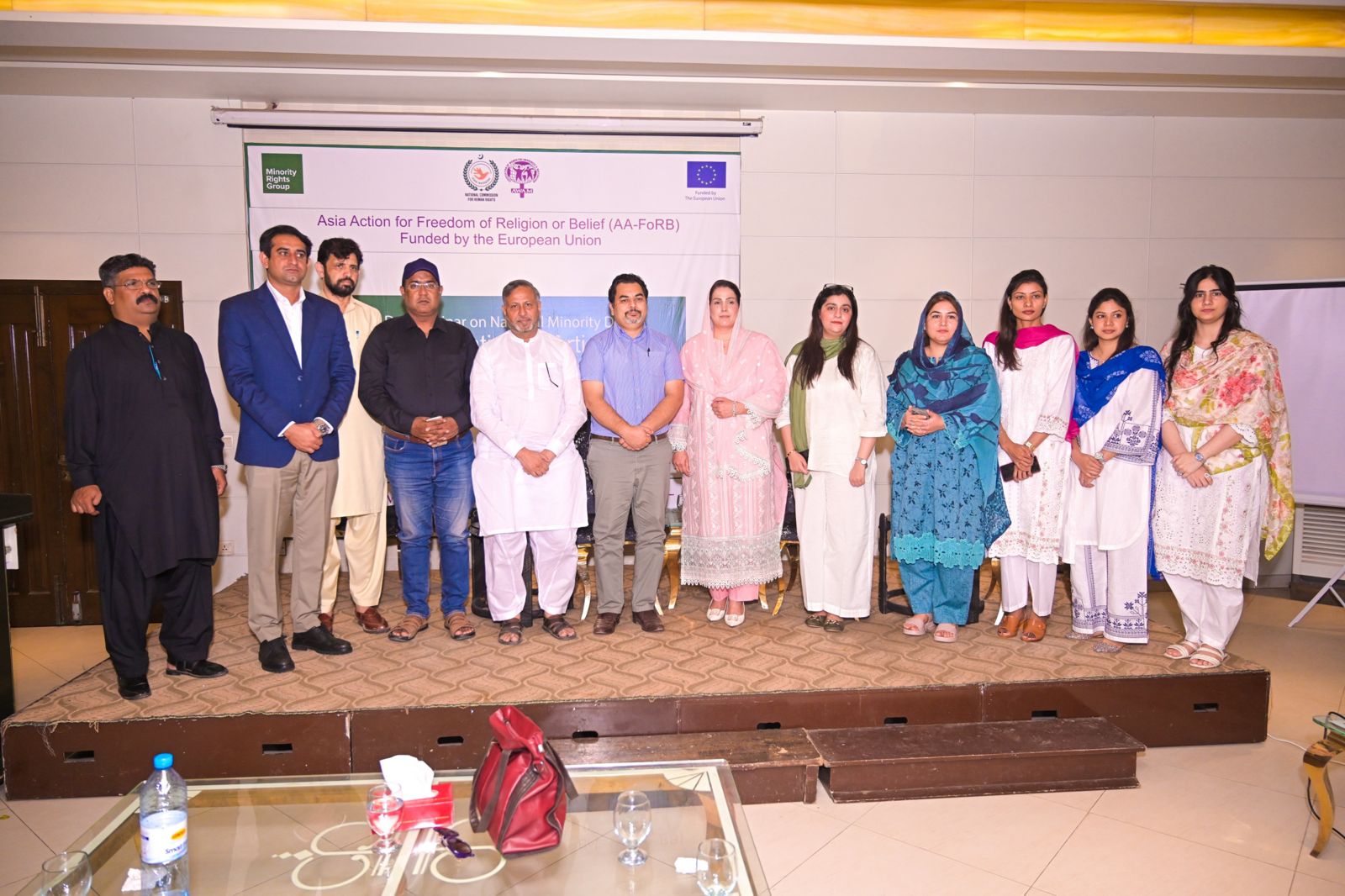News Desk
FAISALABAD — Speakers at a seminar on the implementation of Article 25 of the Constitution have called on authorities and political decision-makers to uphold constitutional guarantees of religious freedom and equal citizenship. They urged the removal of discriminatory provisions from laws and policies, along with concrete measures for the social inclusion of religious minorities. The seminar, titled “Implementation of Article 25: Local Context, Challenges, and Way Forward”, was presided over by Punjab Assembly Member and Parliamentary Minority Caucus member Qudsia Batool. It was organized by the Association of Women for Awareness and Motivation (AWAM) in collaboration with the National Commission for Human Rights (NCHR).
In her remarks, Qudsia Batool said the government was committed to upholding human rights values and ensuring that no one is left behind. She pledged to raise in the Punjab Assembly the concerns of minority communities over unresolved matrimonial issues and the grievances of youth regarding limited economic opportunities.
AWAM Executive Director Sonia Javed and Deputy Director Sonia Patras stated that constitutional guarantees under Article 25 extend beyond minority protection to include gender equality. They noted that members of minority communities face persistent difficulties in registering births, marriages, divorces, and deaths. They called for inclusive governance and the provision of seamless public services for minorities.
Academics including Dr. Ghulam Mustafa, Chairperson of the International Relations Department at GCUF; Dr. Rizwan Ullah Kokab, Chairperson of the History Department at GCUF; and Dr. Sadaf Mehmood, Chairperson of the Sociology Department at the University of Agriculture Faisalabad, said minorities in Pakistan still encounter discriminatory practices, including the designation of janitorial jobs specifically for them. They added that Article 25 reflects the equality principle in the Holy Prophet’s (PBUH) last sermon, but this is often overlooked by both the public and lawmakers. They emphasized that national progress requires recognizing minority communities, addressing their demands, and involving them in decision-making on issues affecting their lives.
NCHR Assistant Director Musharaf Hussain and Beaconhouse International College law department representative Fatima Saeed highlighted gaps between the legal framework and its implementation. They said that biases against minorities persist among some members of parliament and law enforcement agencies. Hussain said the NCHR was among several human rights institutions established to connect the public with state bodies, and stressed the need for reporting human rights violations to ensure effective redress.
Representatives from the journalist community, Naeem Ahmed and Haider Hussain, said the discussion on equal citizenship also affects other vulnerable groups and the media. They noted that in democratic societies, diverse perspectives and dissenting voices are engaged rather than suppressed, and public pressure is seen as part of governance. They urged authorities to ensure transparency, accommodate dissent, and address public concerns without delay


